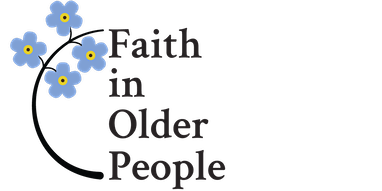The events of 2020 were “unprecedented”, extraordinary, challenging, and sadly, for too many, they’ve been deadly. But something what has struck me is that ageism is alive and well.
The first time I really noticed it was when a wise woman pointed out the messaging around the original COVID-19 warnings: apparently if you were over 70 when the virus hit, you were automatically in the highest risk category. Now, I appreciate that people over 70 do sometimes have more underlying health conditions than people under that age, but to automatically place all over 70s effectively under house arrest last March was, I think, a bit of a knee-jerk reaction. I know of many in that age group who are active, healthy, providing child care, and much more. The lack of subtlety in approach here could be seen as a form of ageism.
More recently, I’m sure we all enjoyed the drama and intrigue of the US Presidential election! Whatever our stance on that, it can’t have escaped anyone’s attention that both candidates were over 70 (Donald Trump was 74 and Joe Biden 77 when the polls opened). And much was made of their age. But why should that be their defining characteristic? Why not allow their skills and experience to speak for them first?
Perhaps this applies across the board, and not just to American Presidents. There is sometimes a general perception that older people are a drain on our economy. However, there is evidence that those of pension age are contributing more than they are ‘costing’. According to the RVS, over 65s made a net contribution of £40billion ten years ago. More recently, in 2014 Age UK found that £61billion was added to the coffers by over 65s the previous year.
Ageism creeps in to various aspects of life and society. Retirement ages are set for us – there comes a time when, regardless of how productive we may be, we may be told to stop working. Our age can prevent us from accessing certain financial benefits or services. Insurers, for example, will often set maximum entry ages for taking out a policy, and will not renew the policy for someone who has reached their policy’s upper coverage limit (limits can vary between providers). The Equality Act 2010, however, names Age as one of its protected characteristics – meaning not allow discrimination based on age in the provision of goods and services. It is simply not allowed (there are very limited exceptions).
Possibly most insidious of all is the tendency, especially in the media, to portray older people as sweet but ‘doddery’. While on the face of it, this may seem harmless, it can tend to patronise, to minimise or invalidate the older person’s experience, and ultimately can diminish their humanity. That way lies abuse. Once we allow ourselves to see an older person as ‘less than a person’, it becomes easier to ignore their needs or interests, to fail to treat them with dignity and respect, and even to directly harm them – physically, verbally, financially…
For all of these reasons, we need to think carefully about the messages we hear, and the messages we speak, around the issue of ageing. Hourglass held its first Safer Ageing Week (beginning 30th November 2020) to promote Safer Ageing, a key strand of our work against the abuse of older people. We want to create environments where older people are empowered to age securely and live free from abuse. Some older people may face barriers to this, but together we can work to remove those barriers – physical, social and attitudinal. People may not think they’re ageist, but can older people thrive in our communities?
If you’d like to know more about Safer Ageing and Hourglass Scotland’s work in keeping older people safe, please visit our website (www.wearehourglass.org). There is information available there on what to do about any concerns about the welfare of an older person or we have a free helpline (0808 808 8141).
Colin Scott
Community Response Co-ordinator, Hourglass Scotland
(colinscott@wearehourglass.org)
18 January 2021

